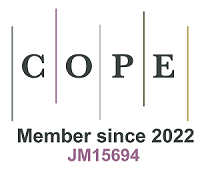fig3

Figure 3. Relative haplotype dosage analysis (RHDO) for NIPD of maternally inherited pathogenic variants. A: Schematic depicting the relative haplotype dosage analysis (RHDO) approach for NIPD of autosomal recessive conditions where both parents are heterozygous carriers (het) for the same condition. Haplotype phasing is carried out on gDNA obtained from the mother, father, and proband to assign informative single nucleotide polymorphisms (SNPs) to a high- or low-risk allele. Informative SNPs are present at loci where the genotype differs between the mother and father. For simplicity, the proband is represented here as affected, but an unaffected proband can be used instead if necessary. RHDO is carried out on the cell-free DNA (cfDNA, orange highlighted area) by probe-based capture of the target region followed by short-read next-generation sequencing (NGS), SNP typing, fetal fraction (FF) calculation, and statistical analysis. The fetal genotype is determined to be unaffected where the paternal high-risk allele is not detected, or if there is low-level detection of the paternal high-risk allele but there is an underrepresentation of informative SNPs associated with the maternal high-risk allele (scenarios one, two and three). Conversely, an affected fetus is identified where the paternal high-risk allele is detected, and there is an overrepresentation of the SNPs associated with the maternal high-risk allele (scenario four). B: Schematic depicting RHDO for NIPD of male fetuses where the mother is het for an X-linked condition. Only maternal and male proband samples are required for haplotype phasing. The fetal genotype is determined to be unaffected (scenario one) or affected (scenario two) where the informative SNPs associated with the high-risk allele are under- or overrepresented in the cfDNA, respectively.





